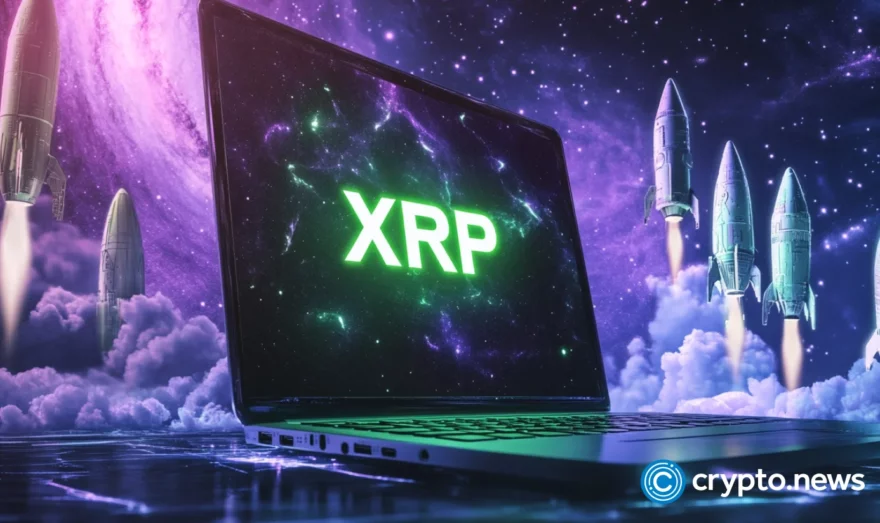The accountability paradox of DePIN | Opinion

Disclosure: The views and opinions expressed here belong solely to the author and do not represent the views and opinions of crypto.news’ editorial.
Decentralization is often idealized in crypto, but its real impact depends on how well it scales and solves real-world problems. It’s about empowering people, not just creating something that sounds good on paper. In decentralized physical infrastructure networks, decentralization encourages global participation and rewards real contributions. But the question remains, who takes responsibility when something breaks, when no single entity is in charge?
While decentralization promises financial freedom, today’s cryptocurrency markets remain anything but stable or decentralized. Amidst the supposed cryptocurrency ‘Bull Run’, the S&P 500 and Nasdaq have logged their worst quarterly performance since the 2020 COVID-19 pandemic—a volatility that extends to crypto as financial and governmental institutions become increasingly entangled.
Fiat’s crisis of confidence is crypto’s opportunity
This unstable market reminds me of what Satoshi Nakamoto warned about years ago, in the Bitcoin (BTC) whitepaper:
“The root problem with conventional currency is all the trust that’s required to make it work. The central bank must be trusted not to debase the currency, but the history of fiat currencies is full of breaches of that trust.”
We’ve since then taken the core principle of decentralization and applied it far beyond—into self-sovereign IDs, DeFi, DAOs, DePIN, and DeSci. But while we’ve been quick to add “De-” to every industry, we haven’t always added the same rigor to questions of responsibility, reliability, and repair. The less glamorous but essential parts of building systems that actually work.
Crypto can remove the need for trust, but can it handle responsibility
Decentralization empowers, but it also raises a critical question: In a world without central authority, who is accountable? When no single entity is in control, holding individuals or groups responsible becomes significantly harder.
If monetary policies go awry, there currently remains a clear centralised entity responsible for addressing the situation. How do we ensure the same accountability when a blockchain node goes awry or network decisions need to be made swiftly?
The DAO incident of 2016 exemplifies this challenge. The DAO was one of the first major projects to focus on decentralized autonomy and was built on Ethereum, raising $150 million to function as a venture capital fund without centralized control.
A vulnerability in its smart contract was exploited, however, leading to a hack that drained about a third of its funds. Since The DAO was decentralized, there was no clear authority to step in and fix the issue swiftly. The Ethereum community had to debate for weeks on whether to intervene, eventually leading to a controversial hard fork that created Ethereum (ETH) and Ethereum Classic (ETC).
This case highlights the decentralization accountability dilemma, especially in times of crisis. When there’s no central authority, collective action becomes slower and more complex, and thus must be paired with mechanisms for accountability.
Null Island and the GPS data dilemma
DePIN and AI systems struggle the most with accountability. They are fuelled by oceans of data, and the constant incentive is to gather more data—not ensure its authenticity.
In many DePIN projects, the race to scale often puts data quantity ahead of quality. Since incentives are usually based on how much data is contributed, there’s little accountability for whether that data is actually useful or reliable. Over time, some networks end up rewarding noise over signal.
For example, some DePIN projects have dozens of nodes off the coast of West Africa, at latitude and longitude 0°N 0°; An empty ocean that has been coined ‘Null Island’ since its prevalence, occurring when location data errors arise in geopositioning, instead replacing the coordinates with “null, null”.
Even when GPS location data is used accurately, it has significant vulnerabilities that are often exploited, such as location spoofing and GPS drift. There’s even an entire subreddit on spoofing your Pokémon Go location to get the best Pikachu without the effort of walking.
- Location spoofing—malicious manipulation of GPS data into false location data.
- GPS drift—when a device’s recorded location is slightly off from the device’s actual position. It can also display as movement even when a device is at a standstill. It can be caused by factors such as signal interference, satellite positioning, or even atmospheric conditions.
This isn’t just a hypothetical issue—faulty location data has real-world consequences.
More value is flowing into location data, from tracking real-world assets to powering smart cities. As more physical assets get connected, the integrity of that data starts to matter more. What if it’s spoofed? Think of drones delivering packages, or vehicles navigating dense urban networks. What happens when that data is wrong, delayed, or manipulated? The cost isn’t always catastrophic, but it adds up—lost time, misrouted goods, inefficiencies, and more.
These are the stakes when data is unverified.
The need for data verification in decentralized networks
Decentralized networks must do more than just eliminate trust in centralized entities; they must replace it with accountability in the form of verifiable, high-quality data. This is exactly where Proof-of-Location technology steps in, adding an essential layer of real-time verification. Data is not only generated but also validated, ensuring it reflects actual conditions rather than manipulated inputs.
For DePINs to be reliable, accountability must be built into the system. If a service fails, the network shouldn’t collapse—it should adapt. This is where redundancy plays a crucial role. Smaller DePIN networks with limited nodes often struggle with this, but established projects have a different approach. With millions of nodes across 150+ countries and battle-tested slashing mechanisms, we ensure the integrity and continuity of geospatial data even when individual nodes fail.
Bad data is an existential threat to DePINs. Without verification, networks become vulnerable to spoofing, fraud, and failure. The future of decentralization hinges not just on removing central authority, but on proving that the data we rely on is accurate and consistently accessible.















